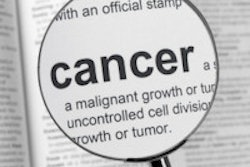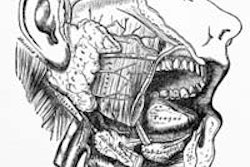Former Boston Red Sox pitcher Curt Schilling announced that he has been diagnosed with squamous cell carcinoma, which he attributed to 30 years of chewing tobacco.
Schilling said he felt a lump on the left side of my neck as he drove to his doctor's office in February to check a dog bite on his hand, according to a boston.com story.
He said he knew immediately it wasn't normal. An ear, nose, and throat specialist had an office next to his doctor so Schilling had the lump checked. The doctor did a biopsy, and two days later Schilling was diagnosed with squamous cell carcinoma.
He was then treated at the Dana-Farber Cancer Institute in Boston. The neck lump was due to an enlarged lymph node, which is the most common presentation of squamous cell carcinoma, noted Robert Haddad, MD, of Dana-Farber.
The 47-year-old Schilling -- who weighed about 200 pounds prior to his diagnosis -- lost 75 pounds during his treatment. He was unable to swallow and also has lost his ability to taste and smell.
Schilling stressed the importance of getting treatment early. He said there is "absolutely no question in my mind" that he got cancer from chewing tobacco for 30 years.
Schilling spent six months in the hospital because of a staph infection and received chemoradiation therapy.
While chewing tobacco, he lost the ability to smell and taste, and his gums bled, but said he was too addicted to quit.
Schilling said the most painful part of treatment was radiation, which he received five days a week over seven weeks. Doctors created a pliable mask to protect his face, but he developed a phobia for it and had to be medicated to continue radiation treatments.
Schilling recalled the recent death of baseball Hall of Famer Tony Gwynn, who died of oral cancer. Gwynn blamed his cancer on his habit of dipping smokeless tobacco.
Schilling is now in remission and can't taste or smell anything, but his doctor said those senses should come back.
The players' labor agreement includes certain limits on the use of smokeless tobacco, but does not ban its use entirely. Players are not allowed to carry tobacco in their uniforms, and they can't use tobacco use during televised interviews and nongame functions. And teams cannot provide tobacco for players.
Several medical and public health organizations recently asked Major League Baseball and the players' union to agree to a complete prohibition on tobacco use at ballparks and on camera.



















